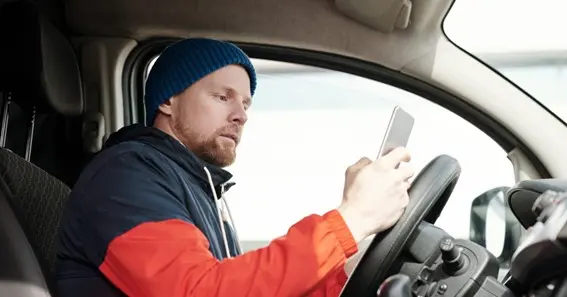When you receive a ticket under NYC Section 1225-D plead down might be one of the first things that comes to mind. Section 1225-D of the New York Vehicle and Traffic Law (VTL) prohibits the use of portable electronic devices while driving, encompassing activities like texting, emailing, browsing the internet, or otherwise interacting with handheld gadgets.
This blog post explores what Section 1225-D entails, when and how to plead down a ticket, and some frequently asked questions regarding the process.
What is NYC VTL Section 1225-D?
VTL Section 1225-D specifically addresses the usage of portable electronic devices while operating a motor vehicle. The law aims to reduce distracted driving by making it illegal to:
- Compose, read, or send text messages or emails
- Browse the internet or use any interactive apps
- Play games, record videos, or take photos
Penalties for Violating Section 1225-D
- Fines: A first offense can result in fines up to $150; subsequent offenses within 18 months can carry higher fines.
- Points: A conviction adds five points to your driving record.
- Insurance Consequences: Adding points may increase your auto insurance premiums.
- Driver Responsibility Assessment (DRA): Accumulating six or more points can result in additional fees paid annually for three years.
When Should You Consider Pleading Down?
Pleading down a traffic ticket generally involves negotiating with the prosecutor or the court to have the charges reduced to a lesser violation. This approach may lower the point penalty or the fine you pay. If you’re looking to mitigate the long-term implications—like points on your license or insurance rate hikes, seeking a plea deal can be beneficial.
How to Plead Down an NYC Section 1225-D Ticket
- Respond Promptly
When you receive a ticket, you’ll have a deadline (often 15 days) to enter a plea of “Guilty” or “Not Guilty.” To preserve your right to fight or negotiate, plead “Not Guilty” initially. If you don’t respond, you risk a default judgment. - Gather Evidence
- Phone Records: Show no usage at the time of the alleged violation if applicable.
- Witness Statements: If passengers can confirm you weren’t using the device, gather their testimony.
- Contextual Evidence: Prove an emergency or any legitimate reason you might’ve had your phone in your hand (although exceptions are very limited).
- Consult Legal Advice
An experienced traffic attorney can help you determine the best strategy. They may negotiate with prosecutors to reduce your offense to a non-moving violation or a lesser charge with fewer points. - Court Appearance or Negotiations
In many jurisdictions, you can negotiate a plea deal before the hearing date or during a pre-trial conference. The goal is to reduce the original charge—often to a lesser violation like a parking ticket or a minor equipment violation. - Finalizing the Plea
If an agreement is reached, you’ll typically pay a reduced fine and, possibly, face fewer or no points. Be sure to read the settlement paperwork thoroughly and understand the terms.
Key Considerations for Negotiating Your 1225-D Ticket
- Potential Impact of Points
Each point on your license moves you closer to potential suspension (at 11 points in 18 months) and can elevate insurance costs. Reducing the charge can minimize these consequences. - Court Backlog & Delays
Some courts have heavy caseloads, which may give you leverage to negotiate a plea instead of taking up court time. However, this is never guaranteed. - Legal Costs
While hiring a lawyer comes with fees, the long-term savings from reduced fines and fewer points can make legal assistance worthwhile.
FAQs
-
Can a Section 1225-D ticket always be pleaded down?
Not always. It often depends on the evidence, your driving history, and the prosecutor’s policies. Having legal representation can improve your chances.
-
Is it possible to avoid points altogether?
Sometimes. If negotiated successfully, prosecutors may reduce the violation to a non-moving offense that doesn’t carry points—like a parking ticket. However, outcomes vary by case.
-
How do I know if I should plead guilty or not guilty?
If you believe the charge was issued in error or you want to minimize penalties, pleading not guilty gives you the opportunity to fight or negotiate. Pleading guilty immediately finalizes the violation, penalties, and points.
-
Can I handle the process myself without a lawyer?
Yes, but an attorney familiar with local court procedures can be invaluable in plea negotiations and in presenting evidence.
-
Do prior violations impact my ability to plead down a ticket?
Yes. If you have a track record of traffic violations, prosecutors may be less inclined to offer a favorable plea. A good driving history can help your negotiation.








